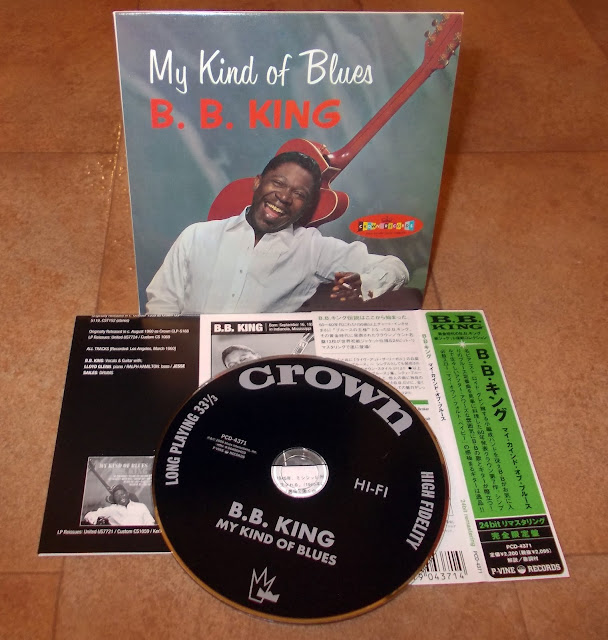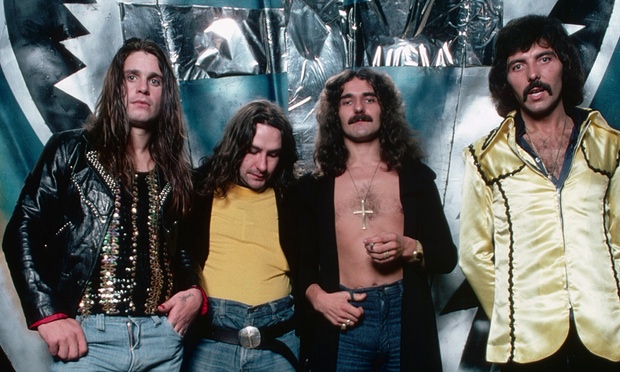Bitrate: 256
mp3
Ripped by: ChrisGoesRock
Artwork Included
Source: Japan 24-Bit Remaster
My Kind of Blues is the sixth studio album released by B. B. King in 1960 A remastered and expanded edition was released in Japan 2006.
According to his biographer, Charles Sawyer, this is King's personal favorite among his recordings. Unlike most of his albums from this period (which are mostly collections of singles), this was recorded in one session and takes him out of his usual big-band setting, using only bass, drums, and piano for accompaniment.
Released around August, 1960 as B.B.'s seventh Crown album. It apparently emanated from a single session about 3 March 1960 with legendary pianist Lloyd Glenn, probably Ralph Hamilton on bass and drummer Jesse Sailes providing spare but sympathetic backing. Glenn was a key to some of the best small group recordings by T-Bone Walker, Lowell Fulson and B.B., and this album remains a highlight. Although B.B. has taken at best an "aw shucks" approach towards other highly regarded later albums such as LIVE AT THE REGAL and BLUES IS KING, he has named MY KIND OF BLUES as a personal favorite. It shows in the music.
The minimalist backdrop and Glenn's empathy as the primary foil gives B.B. free rein as he soars from the elaborate solo introduction to You Done
Lost Your Good Thing Now through an update of My Own Fault covered closely by Otis Rush for Vanguard, the shuffle Mr Pawn Broker which epitomizes the status of this LP as a basic template for the sound of Anson Funderburgh and the Rockets, and a programme of mostly classic blues by Doctor Clayton (one of B.B.'s biggest influences on his vocals and repertoire), Cecil Gant, Roosevelt Sykes, Memphis Minnie and others.
Sawyer, this is King's personal favorite among his recordings.
Unlike most of his albums from this period (which are mostly collections of singles), this was recorded in one session and takes him out of his usual big-band setting, using only bass, drums, and piano for accompaniment.
The result is a masterpiece: a sparse, uncluttered sound with nothing to mask King's beautiful guitar and voice. "You Done Lost Your Good Thing Now" (its unaccompanied guitar intro is a pure distillation of his style),
"Mr. Pawn Broker," "Someday Baby" (R&B Top Ten, 1961), "Walkin' Dr. Bill," and a great version of "Drivin' Wheel" are highlights.
01. "You Done Lost Your Good Thing Now" (B. B. King, Joe Josea) - 05:15
02. "Mr. Pawnbroker" (King, Jule0s Taub) - 03:16
03. "Understand" (Cecil Gant) - 2:39
04. "Someday Baby" (Lightnin' Hopkins) - 02:54
05. "Driving Wheel" (Roosevelt Sykes) - 02:52
06. "Walking Dr. Bill" (Doctor Clayton) - 03:41
07. "My Own Fault" (King) - 03:34
08. "Fishin' After Me" (Robert Petway) - 02:29
09. "Hold That Train" (Clayton) - 03:58
10. "Please Set the Date" (Minnie McCoy) - 02:49
1. Link
or
2. Link
or
3. Link




















